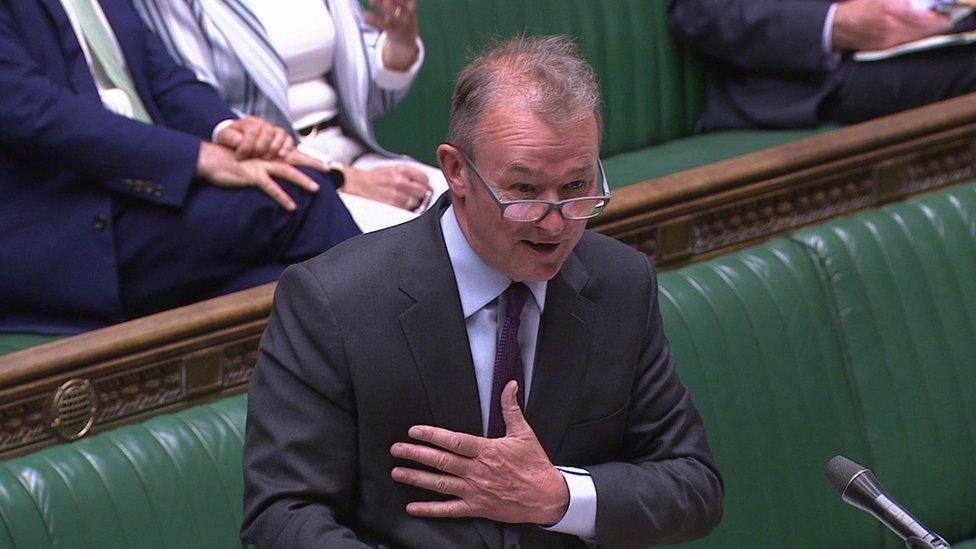Boris Johnson: Last days as prime minister 'a total massacre'
- Published
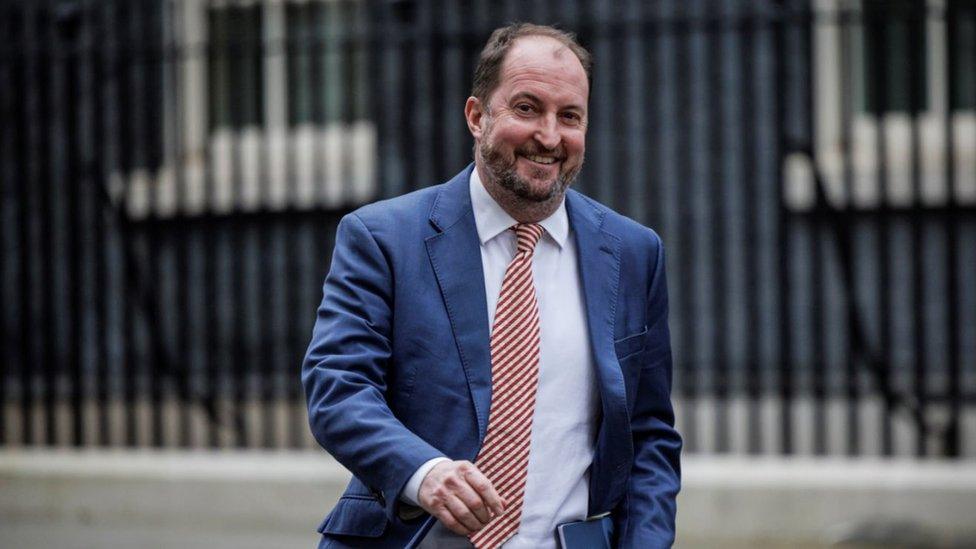
Guto Harri was appointed as communications director at No 10 in February 2022
"I don't think anything prepares you for this kind of massacre, where the bull runs through the shop."
That is how Guto Harri, a former Downing Street head of communications, remembered Boris Johnson's last days as prime minister.
He told BBC Radio Cymru his time at Number 10 was "difficult, but very interesting and productive".
He remembered last September when a deluge of Mr Johnson's cabinet ministers resigned.
"[Rishi] Sunak said publicly that he was leaving his job as chancellor of the exchequer at the time," he said, "without even having the courtesy of telling the prime minister.
"At least Sajid Javid, who was health secretary at the time, went to see the prime minister and told him face to face.
"After that, things moved pretty quickly."
Mr Harri was in the middle of the action at Number 10 between February and September 2022, when Mr Johnson was under pressure following reports of parties held at Downing Street during Covid.
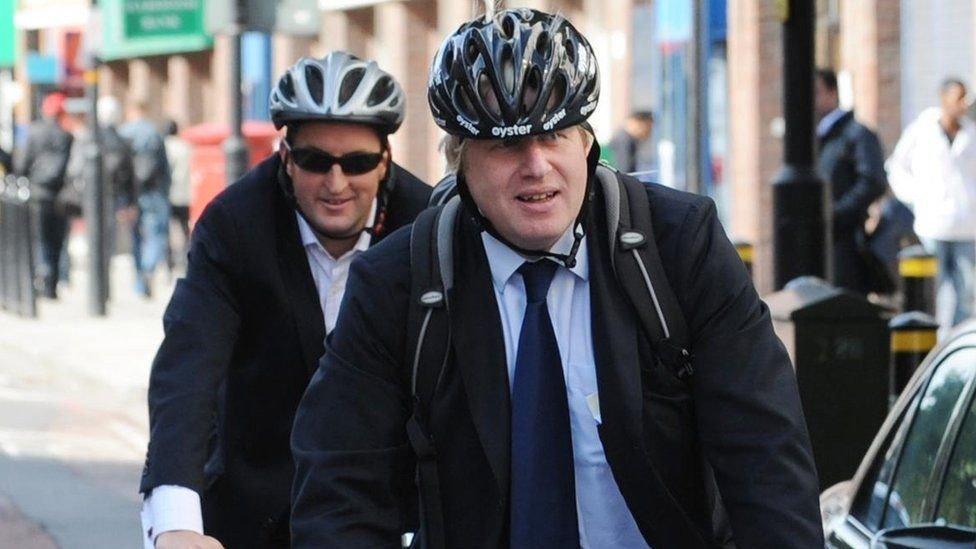
Guto Harri with Boris Johnson in 2009 when he was communications director for the former mayor of London
"I don't think anything prepares you for this kind of massacre, where the bull runs through the shop, where all authority disappears in an instant, everyone turns on each other, and no-one knows who's on their side and who's against them," he said.
"There was a period where it wasn't totally clear that there weren't enough people to fill the [cabinet] jobs and that you could keep things going. But that period didn't last very long."
Responding to reports he tried to encourage Mr Johnson to continue, Mr Harri said, "only one person can make that final decision, and that's the prime minister".
"I didn't want him to turn round, like he's done before after taking major decisions, when he decided to pull out of the Conservative leadership race a few years ago," he said.
"I think he really regretted that decision ever since. So I was very aware that he had to come to the conclusion that it was over and until he himself came to that conclusion, then my job, as one of his lieutenants, was to ensure that the show went on.
"I think, by the end, when you had some ministers who were loyal to him and were very responsible in their attitude to public service, when one or two of those didn't want a promotion, they weren't going to create trouble for him by walking out, but they weren't ready to take another job, I think we'd realised that the writing was on the wall."
Related topics
- Published29 December 2022
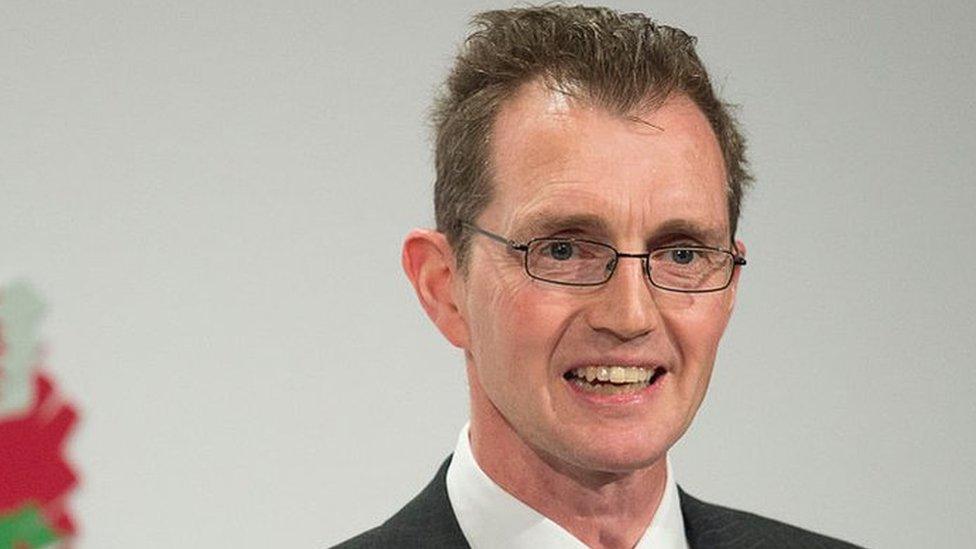
- Published21 October 2022
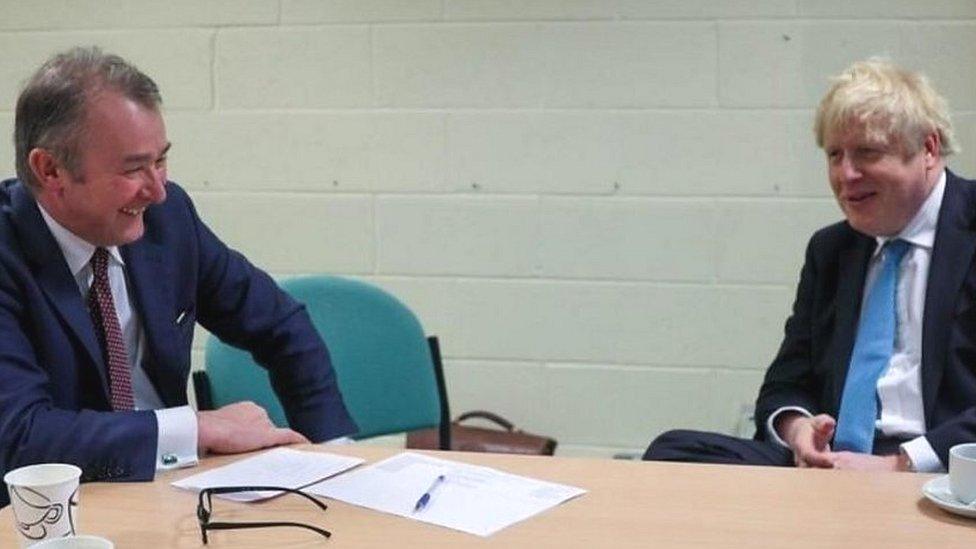
- Published7 July 2022
